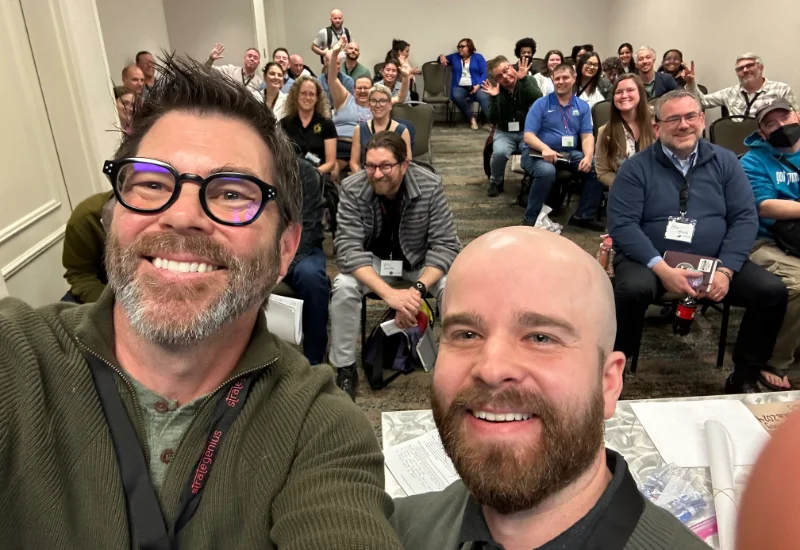- April 30, 2024
Research: Engaging White Men

Understanding and Inspiring the Least Represented Group in Racial and Gender Justice
White men tend to be the least represented group in racial and gender justice work, and the most represented group when it comes to causing harm in the workplace. Organizations – and many white men themselves – are seeking a better way: one that centers values over toxicity, literacy over colorblindness, and engagement over ignorance. There is an incredible opportunity for white men to build the skills they need to bring their best selves to diverse workplaces.
Andrew Knips, The Opt-In’s measurement lead and one of our learning program facilitators, recently co-presented his research on white male identity development at April’s White Privilege Conference with his research partner Brendan Turner. Their research connects closely with The Opt-In’s model of fostering healthy racial identity development through skill building and leveraging ERG-based learning spaces.
Some of the key findings from the research:
- White men often separate race and gender as they reflect on important moments in their lives. This means there’s an opportunity for white men to hone their intersectional (Crenshaw, 1989) lens and be able to examine both race and gender at once. Building those skills would help white men improve their cultural competence.
- White men are most likely to describe experiences where they witnessed harm, as opposed to when they caused or experienced harm. Helping white men build their awareness to personalize racialized and gendered harm – which would mean more acutely noticing moments when they participate in harm – may help white men connect more closely with social justice work and opt into their own skill development.
- White men who are most likely to be in the workforce are particularly primed for learning and unpacking harm. There is an urgent need for more spaces for white men to gather in service of improving their cultural competence and contributing to a healthier, safer org culture.
We are looking forward to continuing to work with Andrew to further incorporate this research into our learning program and methodology.